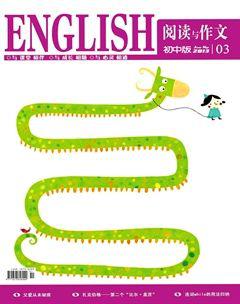连词while的用法归纳
连词while除具有“当时”、“同时”等意义外,根据上下文还有以下不同含义及其不同译法。
一、引导时间状语从句
译作“当……时”。例如:
1. Make hay while the sun shines.
趁着有太阳晒晒草。
(乘机行事,抓紧时机。)
2. We must work hard to gain more knowledge while we are young.
趁着现在还年轻,我们必须刻苦学习,获得更多的知识。
二、引导让步状语从句
常放在句首,译作“尽管”、“虽然”,比although或though语气要轻。例如:
1. While I believe it is true, I cannot prove it.
虽然我相信那是真的,但我无法证明。
2. While any kind of athletic shoe can provide a certain amount of rebound,
energy-return sneakers are designed to maximize this effect.
虽然任何一种运动鞋都能提供一定的反弹力,但回力运动鞋能够使这种效果最大化。
三、引导条件状语从句
相当于as long as,译作“只要”。例如:
1. While there is life, there is hope.
有生命,就有希望。
2. While a spark of life remains, it is a doctors duty to save the patient.
只要病人还有一息生机,医生就有责任挽救。
四、引导原因状语从句
相当于since, 有“既然”的意思。例如:
1. Youll never save any money while youre so extravagant.
你这么奢侈,永远存不下钱来。
2. Id like to get it settled today while were at it.
既然我们着手干了,我想今天就把它干完。
五、连接并列句
表示对比,相当于whereas,译作“而”、“可是”。例如:
1. An outdoors man will soon become pale if he changes to an indoor job, while a desk clerk will take on a tan after a short vacation in the sun.
从事室外工作的人如果调到室内工作,不久肤色就会变白;而一个伏案工作的文员出去度个短假,就会被太阳变黑。
2. Motion is absolute while stagnation is relative.
运动是绝对的,而静止是相对的。
六、连接并列句
表示递进,相当于and what is more, 译作“并且”、“而且”。例如:
1. The new man-made fibres are more hardwearing than natural fibres and greatly reduce mending, while good ready-made clothes are cheap and plentiful.
新的人造纤维比天然纤维耐磨,因此能大大减少修补工作,而且做好的衣服价廉物美,数量也多。
2. Of course, I resolutely determined not to marry, while I quite forgot to consider at all that great rock of disaster in the working-class world—sickness.
当然, 我下定决心不结婚,而且把工人阶级的巨大灾难——疾病,也忘得一干二净。

